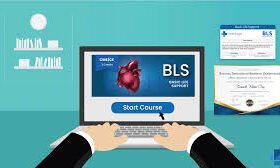Addiction recovery is a challenging journey that often requires comprehensive support. One of the most effective forms of support is group therapy. In this blog, we’ll explore the top 10 benefits of group therapy during addiction recovery, focusing on how it can enhance the healing process and contribute to long-term sobriety.
1. Shared Experiences
Group therapy provides a platform for individuals to share their experiences with others who are going through similar struggles. This shared understanding fosters a sense of community and belonging, which can be incredibly comforting and encouraging.
- Sense of Community: Feeling part of a community can reduce feelings of isolation and loneliness, which are common in addiction.
- Empathy and Understanding: Group members often have a deep understanding of each other’s struggles, creating a supportive environment.
2. Accountability
Accountability is a crucial aspect of addiction recovery. In group therapy, members hold each other accountable, encouraging adherence to recovery goals and discouraging relapse.
- Regular Check-Ins: Frequent meetings ensure that progress is monitored and setbacks are addressed promptly.
- Peer Support: Knowing that others are counting on you can motivate individuals to stay committed to their recovery journey.
3. Learning from Others
Group therapy allows participants to learn from the experiences of others. Hearing about different coping strategies and success stories can provide new insights and inspiration.
- Diverse Perspectives: Exposure to various viewpoints can help individuals develop a more comprehensive understanding of addiction and recovery.
- Practical Advice: Group members often share practical tips and techniques that have worked for them, offering valuable tools for others.
4. Improved Communication Skills
Effective communication is essential for healthy relationships and successful recovery. Group therapy provides a safe space to practice and improve these skills.
- Active Listening: Participants learn to listen actively and empathetically, fostering better interpersonal connections.
- Expressing Emotions: Sharing feelings and thoughts in a supportive setting can enhance emotional intelligence and self-awareness.
5. Emotional Support
Emotional support from peers who understand the complexities of addiction can be incredibly powerful. Group therapy provides a space where individuals can express their emotions without fear of judgment.
- Validation: Recognizing and validating each other’s feelings helps build trust and emotional resilience.
- Encouragement: Positive reinforcement from group members can boost confidence and self-esteem.
6. Reduced Isolation
Addiction often leads to social isolation, which can hinder recovery. Group therapy combats this by connecting individuals with others who are also on the path to recovery.
- Social Interaction: Regular group meetings provide opportunities for social interaction, reducing feelings of loneliness.
- Building Relationships: Developing relationships within the group can lead to lasting friendships and a stronger support network.
7. Structured Environment
Group therapy sessions offer a structured environment that can be particularly beneficial for individuals in early recovery.
- Routine: Having a set schedule for therapy sessions adds routine and structure to daily life, which can be stabilizing.
- Guidance: Professional facilitators guide the sessions, ensuring that discussions remain productive and supportive.
8. Cost-Effective
Compared to individual therapy, group therapy is often more cost-effective, making it accessible to a broader range of people.
- Shared Resources: Costs are shared among group members, reducing the financial burden on individuals.
- Access to Quality Care: Group therapy offers access to professional guidance at a fraction of the cost of individual therapy.
9. Inspiration and Hope
Seeing others make progress and achieve their recovery goals can be incredibly inspiring and instill hope.
- Role Models: Group members who are further along in their recovery journey can serve as role models, demonstrating that long-term sobriety is achievable.
- Motivation: Success stories within the group can motivate individuals to stay committed to their own recovery.
10. Enhanced Coping Skills
Group therapy helps individuals develop and enhance their coping skills, which are essential for managing cravings and preventing relapse.
- Stress Management: Learning new ways to handle stress can reduce the risk of turning to substances for relief.
- Problem-Solving: Group discussions often focus on problem-solving strategies, equipping members with practical tools for overcoming challenges.
Conclusion
Group therapy is a powerful component of addiction recovery, offering numerous benefits that can significantly enhance the healing process. From providing emotional support and reducing isolation to improving communication skills and fostering a sense of community, the advantages of group therapy are manifold. For those seeking a comprehensive and supportive approach to addiction recovery, group therapy, especially in luxury rehab centers, can be an invaluable resource.
By participating in group therapy, individuals gain access to a supportive network that can help them navigate the challenges of addiction recovery. Whether in an addiction treatment center or a luxury rehab center, the benefits of group therapy can pave the way for lasting sobriety and a healthier, more fulfilling life.
If you or a loved one is struggling with addiction, consider the transformative power of group therapy as part of your recovery journey. With the right support, recovery is not just possible—it’s within reach.















Leave a Reply